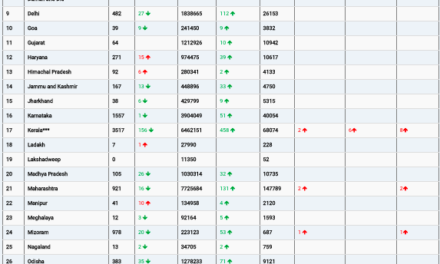Recent research suggests that when we eat can significantly impact our health and well-being. A special issue of the Journal of the Academy of Nutrition and Dietetics (JAND) on chrononutrition delves into this subject, shedding light on the science behind meal timing and its effects on metabolism and overall health.
The Science of Chrononutrition
Chrononutrition is an emerging field that examines the interplay between meal timing, circadian rhythms, and metabolic health. This special issue, published by Elsevier, highlights various fasting regimens and offers practical guidance for their implementation. The focus is on aligning meal times with our biological clocks to enhance health outcomes, particularly through intermittent fasting.
Insights from Leading Experts
Guest Editor Dr. Krista Varady, from the University of Illinois Chicago, has dedicated over 15 years to studying intermittent fasting. She explains, “Intermittent fasting has emerged as one of the most popular diets for weight loss in recent years. It involves alternating periods of eating with periods of fasting. This issue examines the effects of time-restricted eating, alternate-day fasting, and the 5:2 diet on body weight, cardiometabolic disease risk, sleep, and exercise performance in human subjects. We also cover safety considerations and practical guidance.”
Dr. Linda G. Snetselaar, Editor-in-Chief of JAND, underscores the clinical implications of these findings. She states, “The timing of eating will become increasingly important as we address dietary interventions related to chronic disease risk factors.”
Key Studies and Findings
One notable study, “Randomized Controlled Feasibility Trial of Late 8-Hour Time-Restricted Eating for Adolescents With Type 2 Diabetes,” led by Dr. Alaina P. Vidmar, explores an 8-hour eating window for adolescents with obesity and type 2 diabetes. The study found that late time-restricted eating is safe and acceptable, leading to meaningful weight loss and improved glucose management without negatively impacting sleep, eating behaviors, or physical activity.
Another significant paper, “Indices of Sleep Health Are Associated With Timing and Duration of Eating in Young Adults,” by Dr. Jess A. Gwin, reveals that meal timing affects sleep health. The study highlights the need for further research on aligning eating occasions with sleep-wake cycles to improve sleep quality.
The article “Time-Restricted Eating in Community-Dwelling Adults: Correlates of Adherence and Discontinuation in a Cross-Sectional Online Survey Study” by Dr. Sydney G. O’Connor discusses factors influencing adherence to time-restricted eating. Motivators such as weight maintenance, improved sleep, and disease prevention play crucial roles in dietary adherence.
Practical Implications
Dr. Varady concludes that intermittent fasting offers an alternative approach to weight management by simplifying the process of monitoring food intake. “Many people stop adhering to standard diets that restrict calories because they become frustrated with having to regularly monitor food intake day in and day out. Intermittent fasting protocols can bypass this requirement by allowing participants to simply ‘watch the clock’ instead of monitoring calories, while still producing weight loss,” she notes. This approach is particularly accessible for lower-resource patient groups, as it does not require purchasing expensive food products and allows individuals to continue consuming familiar foods.
Conclusion
The findings from the special issue of JAND underscore the importance of meal timing in maintaining metabolic health and preventing chronic diseases. As the field of chrononutrition continues to grow, aligning eating patterns with our biological clocks could become a cornerstone of dietary interventions aimed at improving overall health and well-being.
References:
- “Randomized Controlled Feasibility Trial of Late 8-Hour Time-Restricted Eating for Adolescents With Type 2 Diabetes” by Elizabeth Hegedus, et al., Journal of the Academy of Nutrition and Dietetics, October 2023. DOI: 10.1016/j.jand.2023.10.012
- “Indices of Sleep Health Are Associated With Timing and Duration of Eating in Young Adults” by Charlotte A. Griffith, et al., Journal of the Academy of Nutrition and Dietetics, April 2024. DOI: 10.1016/j.jand.2024.04.016
- “Time-Restricted Eating in Community-Dwelling Adults: Correlates of Adherence and Discontinuation in a Cross-Sectional Online Survey Study” by Caitlin P. Bailey, et al., Journal of the Academy of Nutrition and Dietetics, December 2023. DOI: 10.1016/j.jand.2023.12.006











